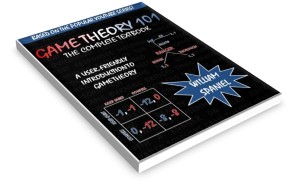“Expected utilities” are the payoffs that we use in game theoretical models. While we have taken them for granted so far, this unit explores the properties of expected utilities, as first analyzed by John von Neumann and Oskar Morgenstern.
Takeaway Points
- Expected utilities are a mathematical method of representing an actor’s preferences.
- Preferences therefore define expected utilities, not the other way around. Consequently, these are perfectly fine to use even if you don’t believe that people run around assigning numerical payoffs to every outcome they encounter.
- Non-numerical preferences are a mess to manipulate, however, which is why we convert them to numerical utilities.
- To convert preferences to utilities, four properties of preferences must hold: completeness, transitivity, independence over lotteries, and continuity. We explore each of these axioms in this unit.
Note: Materials from this lecture and beyond are not covered in the textbook.

